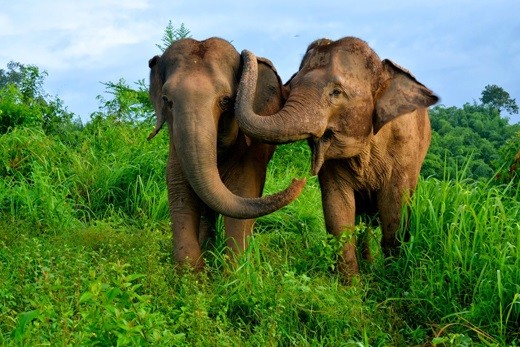
According to a new study, Asian elephants recognize when a herd mate is upset and offer gentle care and sympathy.
Joshua Plotnik, a behavioral ecologist at Mahidol University in Kanchanaburi, Thailand and primatologist Frans de Waal, director of Emory University's Living Links Center did a thorough study to check exactly what these animals believe in and relate to during their times of hardship.
The researchers observed 26 elephants of different ages at the Elephant Nature Park in the Mae Tang district of Chiang Main Province, Thailand. For a period of one year, the researchers spent about two weeks every month and three hours daily observing the behavior of the animals. Their findings showed evidences of "emotional contagion" when a herd mate tried consoling its upset mate.
"With their strong bonds, it is not surprising that elephants show concern for others. They get distressed when they see others in distress, reaching out to calm them down, not unlike the way chimpanzees or humans embrace someone who is upset", National Geographic quoted de Waal.
A stress-inducing situation might be a snake passing by the grass or a dog walking or a roar. At times, the reason for the stress was unknown. Sometimes mates chirped with vocal offerings that suggested the stressed one reassurance and sometimes these animals formed a shielding circle around the distressed one.
"They get distressed when they see others in distress, reaching out to calm them down, not unlike the way chimpanzees or humans embrace someone who is upset. Still, I was surprised at how consistent the elephants' consolation behavior was," said Plotnik.
The authors said that this new discovery is exciting as it shows behavioral emotions similar to that of humans.
The details of the findings have been published in the PeerJ journal.

















